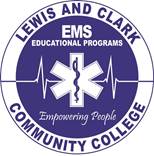 EMTs providing basic life support and paramedics providing advanced life support have the capabilities to perform lifesaving techniques such as CPR, the use of an AED, airway management, the application of a tourniquet, splinting, emergency childbirth, emergency operations and multiple other skills.
EMTs providing basic life support and paramedics providing advanced life support have the capabilities to perform lifesaving techniques such as CPR, the use of an AED, airway management, the application of a tourniquet, splinting, emergency childbirth, emergency operations and multiple other skills.
Diagnostic, therapeutic and pharmacologic advancements in medicine have dramatically improved the quality of care available to critically ill or injured patients in the pre-hospital setting. EMTs and paramedics function through physician medical oversight as crucial members of a comprehensive emergency medical services (EMS) response system. EMTs and paramedics work closely with firefighters and police officers on incident scenes as part of public safety.
Lewis and Clark's EMT course and Paramedicine program are committed to the dynamic challenge of training and educating EMTs and paramedics to the highest standards. This program has kept pace as technological advances and demands have evolved. L&C provides students with the solid foundation in emergency medicine necessary to enter this rewarding and exhilarating career. Learning includes classroom, lab, simulation instructions and clinical experience in local hospitals, ambulance services and fire stations.
The EMT course can be completed in one semester while the Paramedicine program can be completed in two years.
Offerings
- Emergency Medical Technician | Certificate of Completion
- Paramedicine | AAS degree
- Paramedicine | Certificate of Proficiency
See the catalog for the course and degree information
*This is only meant as a guide. Please see an advisor when planning your courses.
Grants and Scholarships
Resources
Accreditation
The EMT course and Paramedicine program meet both the National and Illinois Department of Public Health educational standards. The Lewis and Clark Community College Paramedic Program is accredited by the Commission on Accreditation of Allied Health Education Programs (www.caahep.org) upon the recommendation of the Committee on Accreditation of Educational Programs for the Emergency Medical Services Professions (CoAEMSP).
Commission on Accreditation of Allied Health Education Programs
9355 113th St. N, #7709
Seminole, FL 33775
(727) 210-2350
www.caahep.org
To contact CoAEMSP:
8301 Lakeview Parkway, Suite 111-312
Rowlett, TX 75088
(214) 703-8445
Fax: (214) 703-8992
www.coaemsp.org
Student Achievement Data
The EMT and Paramedicine curriculum prepares the graduate to sit for the National Registry of Emergency Medical Technicians (NREMT) Certification. EMT and Paramedicine graduates must successfully complete both the psychomotor and cognitive exams. NREMT provides National EMS Certification for the United States. After graduates obtain National EMS Certification, they must obtain a license from the State EMS Office in the state(s) you plan to practice. All fifty states either recognize or require the NREMT Certification.
L&C EMT Program
Pass Rates for the National Registry of Emergency Medical Technicians Certified NREMT Exam
| 2017 | 2018 | 2019 | 2020 | 2021 | 2022 |
|---|---|---|---|---|---|
| 94% | 92% | 83% | 82% | 83% | In Progress |
L&C Paramedicine Program
Retention, exam pass rates and job placement by cohort
| Year | 2017 | 2018 | 2019 | 2020 | 2021 |
|---|---|---|---|---|---|
| Retention | 60% | No graduates during the 2018 reporting year | 90% | 80% | 100% |
| Illinois State/ NREMT Cognitive Exam | 100% | No graduates during the 2018 reporting year | 89% | 85.7% | 80% |
| Illinois State / NREMT Psychomotor Exam | 100% | No graduates during the 2018 reporting year | 100% | 100% | 75% |
| Job Placement | 100% | No graduates during the 2018 reporting year | 100% | 100% | 100% |
Licensure Information
Lewis and Clark Community College EMT courses and Paramedic program meet both the state and national education requirements to apply for the NREMT exam and to apply for a license to practice. The National Registry is recognized in every state in the United States, and 46 states use the National Registry certification as a basis for licensure of which includes Illinois and Missouri. Lewis and Clark Community College has not determined if the Associate’s in Applied Science Paramedicine program meets the state education requirements in any other state, any U.S. Territory, or the District of Columbia. Students considering licensure in other states, U.S. Territories, or the District of Columbia should contact the appropriate licensing agency in the area where you plan to be licensed prior to enrollment at Lewis and Clark Community College to ensure the coursework meets those requirements.
